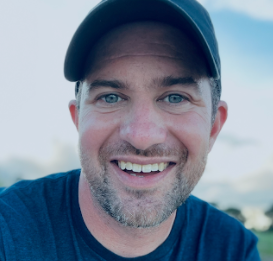How “Player Empowerment” Will Unlock Billion-Dollar Sports Brands: The Rise of Athlete Podcasters (Part 2/2)
In part one of our industry report on the rise of sports podcasting, we broke down the recent wave of athlete-led podcasts. Since publishing a week ago, there have been two new major announcements: Kevin Durant partnered with Cadence13 to launch his own podcast network and Deion Sanders left the NFL Network to launch a podcast with Barstool Sports.
We’ve established what’s happening, why it’s happening, and how sports podcasters can take advantage of this billion-dollar brand-building moment. Now we’d like to explore the underlying dynamics of some exciting opportunity lanes within this emerging space.
In the article below, we focus on three different stakeholders that can unlock immense value in podcasting: professional athletes, league media partners, and college athletes.
More than an Athlete
Today’s generation of professional sports has been dubbed the “Player Empowerment Era”. The next phase of this era will be shaped by podcasting (and vice versa).
Athletes no longer need traditional media middlemen to tell their stories and influence fan perception. With the rise of social media, athletes have taken over ownership of their brands by connecting to fans directly—expressing their passion, quirks, and interests that define who they are off the field and court.
And fans are loving it.
The average NBA player has 710,000 Instagram followers, and the top 25 most popular players average over 8 million followers. As a result, Gen Z fans now favor athletes over teams by a margin of 2-to-1 compared to baby boomers.
Athletes have used the platforms at their disposal to redefine how the world sees them; now, they’re people first and athletes second.
Aided by this democratization of media, and the autonomous brand-building powers that have come with it, the consciousness of the modern athlete has evolved. Although pro athletes have always sought to maximize the revenue potential of their brief playing careers, this mindset is no longer limited to lucrative endorsement deals and appearance fees. Today, athletes seek to leverage their unique platforms to create value—both personally and communally—that will long outlast their playing careers.
Athletes are thus becoming more entrepreneurial. Transitioning from employees to owners in the world of media and entertainment.
They now seek to create sustainable enterprise value and social progress, and are launching their own:
-
Media brands like Lebron James’ Uninterrupted, Derek Jeter’s The Players’ Tribune
-
Production companies like Lebron James’ Springhill Entertainment which just raised 100 million dollars and signed an overall deal with ABC Studios, Steph Curry’s Unanimous Media, Russel Wilson’s Why Not You Productions, and Religion of Sports, which was founded by Tom Brady and Michael Strahan
-
Investment vehicles like Kevin Durant’s Thirty Five Ventures, which invested in Postmates, Acorns, Overtime, and Coinbase
-
Charitable foundations like. The Lebron James Family Foundation, The JJ Watt Foundation, The Kevin Durant Charity Foundation
-
Fashion and lifestyle brands like Megan Rapinoe’s Re-Inc and Russel Westbrook’s Honor The Gift, and more
Building on the wave of athlete-led media and production companies launched over the last five years, and the trend of athletes as storytellers and activists, we believe that the next phase of athlete-driven media ventures will be podcast companies. Given the volume of deal flow we at RockWater have observed in the audio space, especially for personality-driven content (e.g. Spotify / Ringer, Spotify / Rogan, Penn National Gaming / Barstool Sports), and the popularity of sports / entertainment podcasts (4 of the top 10 ranked podcast networks are currently sports / entertainment-focused), we expect to see more athletes embracing the medium to build and monetize their personal brands, and enact social progress.
Fans have a greater appetite than ever to engage with their favorite athletes, get to know them as people off the field and court, and connect with them over the stories and issues they’re most passionate about. And athletes are leaning into this demand.
The surge of athlete-led podcasting will be built on the convergence of these two themes of the player empowerment era: athletes as three-dimensional storytellers, and as owners of media ventures.
As one of the most intimate entertainment mediums, podcasting is perfect for athletes interested in showcasing their off-the-field and court personalities. Combining the off-the-cuff authenticity of social media, with the longform storytelling of traditional media, podcasting is the logical next step for athletes who want to build brands for themselves that transcend their sport. And it’s the perfect medium to extend the dialogues around social justice and other passions that players are already leading across other platforms.
For example, on the podcast Flying Coach, NBA and NFL coaches Steve Kerr and Pete Carrol interviewed Senator Corey Booker about criminal justice reform, and on the second episode of his new podcast network JJ Reddick spoke with Democratic politician and activist Stacey Abrams about social justice. Athletes are already leading cultural and social movements. Podcasting gives them another platform on which to do so.
Podcasting not only provides a new pathway towards player empowerment by allowing athletes to connect with fans on a more personal basis, but it also provides a new pathway to enterprise value creation.
JJ Reddick left The Ringer to start his own podcast network so that he could own IP. Kevin Durant launched The Boardroom Podcast Network as an extension of the popular Boardroom brand that he built on video with ESPN+, which highlighted KD’s passion and knowledge for entrepreneurship. Will Lebron James launch a Springhill podcast network featuring More Than An Athlete and I Promise shows? Will the recent wave of premium athlete documentaries (following the success of the recent Michael Jordan The Last Dance docuseries, documentary projects on Tom Brady, Magic Johnson, and Dwayne Wade were all quickly greenlit) translate to audio? Perhaps we’ll begin to see a wave of premium docuseries podcasts, narrated, produced, and owned by the athletes themselves (think Serial meets The Last Dance)?
Given the the themes of “The Player Empowerment Era” and the market activity we’re seeing in the personality-driven podcast space, we believe this is just the beginning.
More than a TV Network: Using the Power of Audio to Drive Value for Prospective Rights-Holders
Over the next five years, the media rights for most of the major global sports leagues are set to expire:
-
MLB: 2021
-
NHL: 2021
-
NFL: 2022
-
Premier League: 2022
-
NBA: 2024-2025
And we believe that podcasts may play an integral in shaping the future of the live rights ecosystem.
As we explained in part one of our Sports Industry Report, live TV rights are the most significant revenue stream for the leagues. And for the TV networks, live sports rights are the glue keeping the pay-TV bundle together (in 2019, 88 of the top 100 rated TV broadcasts were live sports games).
However, with this upcoming rights cycle, not only will the price skyrocket for the networks bidding on these rights, but there will be new bidders at the table. Digital entrants like Amazon, Facebook, DAZN, and YouTube have all bid on live rights packages since the last major round of negotiations, and they’ve signaled intent to expand their live sports footprint in the future.
But it’s significant to note that when the NFL officially kicked off negotiations last month, the league only met with their four traditional partners: CBS, NBC, Fox, and ESPN. We at RockWater believe this is, in part, due to the fact that all four networks have developed premium OTT products that will enable the NFL to maintain broad reach by offering access to both linear and digital / mobile audiences. In the face of mass cord-cutting, outlined in our blog post on “The AVOD Wars”, OTT is not only a necessary strategic initiative to maintain viewership and relevance with nextgen fans, but it’s especially important because, for these networks, keeping the NFL happy is an existential necessity.
As rights fees are going up and network revenues are going down, it’ll be costly for these networks to maintain premium sports rights—but it’ll be more costly to lose them.
Amazon, Facebook, and Google have deeper pockets than these networks combined—but being the most valuable partner to the league means more than writing the biggest check. Rights-owners seek to partner with broadcasters that can foster the long-term health of the league through maximizing reach, visibility, and brand marketing. For example, through its 24/7 multi-network “shoulder programming” of highlights, previews, and league game recaps, ESPN / Disney provides value to league partners that transcends their rights fees (not to mention how the DisneyWorld “bubble” has enabled the NBA to survive, and even thrive, during the COVID crisis).
Fox recently launched a weekly NFL late night show, and has provided the NFL rights to sell national advertising against the media. CBS offers non-stop advertising across their network, which has been the most-watched in America for 12 consecutive years. Conversely, even if Facebook were to outspend these traditional counterparts on exclusive live rights, where would the live content live on the social juggernaut’s platform? How would audiences discover it? How would the platform promote it? Leagues are beginning to experiment with non-traditional platforms, but at the end of the day, they’re risk averse—and they want to partner with broadcasters they can trust to fan the flames of their fandom.
This is where podcasts come into play.
As we broke down in part one of blog post series, the audio space levels the playing field for sports content creators—neutralizing the inherent advantage rights-holders like ESPN and Fox have across linear and digital video. Therefore, league broadcasters need to invest in a robust audio slate to fortify their competitive moat against the hordes of emerging and well-capitalized competitors.
For decades on linear TV, and then recently via digital video, league partners have built content ecosystems around tentpole live sporting events—especially via subsidiary properties like WarnerMedia’s Bleacher Report and House of Highlights, which have both helped their partner, The NBA, gain cultural relevance with younger audiences. Now, as audiences shift towards increased podcast consumption, prospective rights-holders need to build out similar assets in the audio space in order to strengthen their value to potential league partners.
Leagues may not care about which podcast networks its athletes and personalities host shows on (although they should, because as podcast advertising revenue continues to grow, this represents an increasingly valuable revenue source that they’re missing out on). For rights-owners, sports podcasts represent a marketing tool that will lead viewers back to their product. No matter which sports podcast network is winning, so are the leagues.
But for prospective league broadcast partners, including the new digital entrants, winning the sports podcast battle does matter. As they all seek to prove to rights-owners that they’ll be the best home for the league’s cherished live rights, podcasts will be an increasingly valuable piece of the puzzle. We believe that the sports podcast space will soon be even more crowded, though still not saturated, as prospective rights-holders double down on audio.
Empower College Athletes
College sports are at a crossroads.
Although marketed as “amateur athletics”, and powered by athletes who have historically been forbidden from monetizing their likeness in any way, last year, “The Power Five” NCAA athletic conferences generated a combined $2.9 billion in revenue.
However, the tides are turning. Over the past two years, new laws have been passed and old regulations have been overturned, laying the groundwork for student athletes to monetize their likeness in the not-too-distant future.
Revenue follows audience. Audience follows star-power and IP. And as a multi-billion dollar industry that garners cult-like obsession across many regions in this country, many of the most recognizable IP brands are found in college sports, and the most visible and influential celebrities in our culture are often the student athletes representing those universities.
As regulation continues to be relaxed over the next few years, college athletes, like the pros mentioned above, will begin to monetize their outsized platforms. And podcasts will be one of the most attractive and viable revenue pathways.
Due to the lifestyle of a college athlete (very little free time in their days consumed with classes, practice, and other obligations—plus many athletes live on campuses in rural areas), we don’t expect them to monetize their celebrity by appearing in suits and ties on ESPN studio shows, or starring in major film or TV productions. As mentioned in part one, podcasts are produced via a rapid and lean process, which is highly conducive for college athletes looking to dip their toes in the media waters. College athletes can easily record podcast episodes from their dorm, locker room, or team bus—enabling them to seamlessly build and monetize their personal brands by engaging their loyal fans on an authentic and personal level.
They won’t have the capital or infrastructure (e.g. ad sales) to launch their own networks like the pros. But these college athletes will be highly attractive “aqui-hires” for established and emerging sports podcast networks like The Ringer, Barstool Sports, and BlueWire, who are all looking to bolster their slate with premium personalities that can activate audiences. And perhaps we’ll see the launch of new podcast networks built specifically around amplifying and monetizing the voices of college athletes.
As soon as it’s legal, we expect to see an explosion of college athlete podcasters.
Conclusion
Three consequences of the fragmenting media ecosystem that we’ve observed thus far are:
-
The outsized value and cultural significance of live sports, and the athletes associated with them.
-
The outsized value of influential personalities that can activate audiences across platforms.
-
The growth of podcast audiences, revenues, and valuations.
The surge of athlete-led podcasting is built on the convergence of these three powerful trends.
As the “Player Empowerment Era” continues to evolve, and trickle down to the collegiate level, we at RockWater expect that this sports podcasting movement will continue to grow rapidly. And we expect various stakeholders—from athletes to agencies, leagues to traditional networks, incumbent and emerging digital players—to invest in this emerging vertical. For all of these stakeholders, the goal is to drive revenue and enterprise value by aggregating and activating passionate audiences. And we believe that player-led sports podcasting is a viable means to that end.
However, participants need to move fast. The space is not yet saturated, but the ground-floor real estate is quickly being claimed.
—
Ping us here at anytime. We love to hear from our readers.



